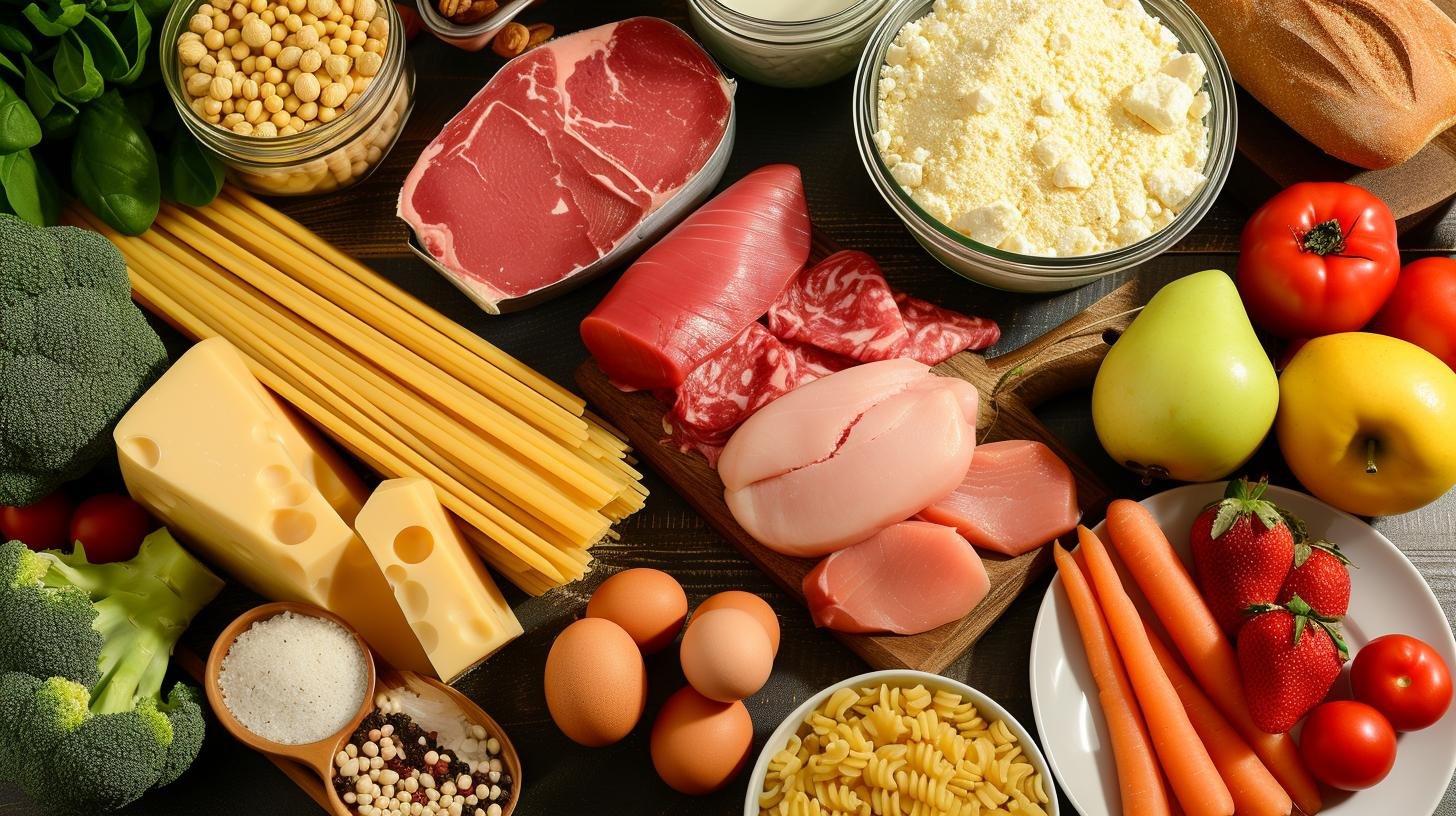Misoprostol, a medication commonly used for inducing abortion or treating stomach ulcers, can be highly effective when taken correctly. However, the effectiveness of misoprostol can be compromised by certain foods that interfere with its absorption and impact its potency. In this article, we will explore the importance of diet after taking misoprostol and the specific foods to avoid in order to ensure its effectiveness.
Misoprostol is a medication that is widely used for various medical purposes, including inducing abortion and treating stomach ulcers. It works by causing the uterus to contract and by reducing the amount of acid produced in the stomach. This makes it an effective choice for both gynecological and gastroenterological issues.
After taking misoprostol, it is crucial to pay attention to your diet in order to maximize its effectiveness. Certain foods can interfere with the absorption of misoprostol in the body and diminish its effects. In this article, we will delve into the specific foods that should be avoided after taking misoprostol in order to ensure that it works as intended.
Spicy foods are known for their ability to cause irritation in the digestive system, which can have a detrimental effect on the effectiveness of misoprostol. Likewise, dairy products can also interfere with misoprostol’s absorption, potentially reducing its efficacy. The acidity of certain foods can also impact how well misoprostol is absorbed in the body, making it important to be mindful of these factors when considering your post-misoprostol diet.
In addition to spicy and acidic foods, fatty foods are also something to be cautious about when taking misoprostol. Consuming high-fat meals around the time of taking this medication can increase its absorption rate, leading to potentially harmful side effects. Furthermore, mixing alcohol with misoprostol should be strictly avoided due to significant health risks and reduced effectiveness of the medication.
It is evident that maintaining a healthy diet after taking misoprostol is crucial for achieving optimal results from this medication. By being mindful of what you eat and avoiding certain types of food known to interfere with its effects, you can ensure that misoprostol performs as intended for your specific medical needs.
How Misoprostol Works in the Body
Misoprostol is a medication that is commonly used to prevent stomach ulcers while taking nonsteroidal anti-inflammatory drugs (NSAIDs) like aspirin, ibuprofen, or naproxen. It works by protecting the lining of the stomach and decreasing the production of stomach acid. Misoprostol is also used in combination with mifepristone to end an early pregnancy. Understanding how misoprostol works in the body is essential to knowing how to properly manage your diet after taking this medication.
Protecting the Stomach Lining
One of the key functions of misoprostol is to protect the stomach lining from damage caused by NSAIDs. This means that it helps in preventing stomach ulcers and other digestive issues as a result of using these medications.
Decreasing Stomach Acid Production
Another important aspect of misoprostol’s mechanism is its ability to reduce the production of stomach acid. By doing so, it helps alleviate symptoms related to excess acidity such as heartburn or indigestion.
Managing Post-Misoprostol Diet
After taking misoprostol, it’s important to be mindful of your diet in order to maximize its effectiveness and minimize any potential side effects. Certain foods can interfere with how misoprostol works in the body, so being cautious about what you eat can make a difference in your overall well-being.
The Impact of Diet on Misoprostol’s Effectiveness
It’s crucial to understand that your diet can significantly impact how well misoprostol works. Some foods may hinder its absorption or neutralize its effects, potentially leading to treatment failure or reduced efficacy. Therefore, paying attention to what you eat after taking misoprostol is essential for achieving the desired results.
Importance of Diet After Taking Misoprostol
After taking misoprostol, it is crucial to pay close attention to your diet in order to ensure the effectiveness of the medication. Misoprostol is a medication commonly used for medical abortions and to treat stomach ulcers.
It works by causing contractions in the uterus and reducing the production of stomach acid, which can lead to the expulsion of the uterine contents or healing of stomach ulcers. In order for misoprostol to work as intended, it is important to be mindful of what you eat after taking the medication.
The diet after taking misoprostol plays a crucial role in ensuring that the medication works effectively. Certain foods can interfere with how misoprostol is absorbed and utilized by the body, potentially diminishing its effectiveness. Therefore, it is important to be aware of which foods can impact the medication and make necessary adjustments to your diet.

Many individuals may not realize that certain foods can interfere with misoprostol’s effectiveness. This includes spicy foods, dairy products, acidic foods, and fatty foods. These types of foods can hinder the absorption and activity of misoprostol in the body, leading to potential complications or reduced efficacy of the medication.
Understanding which foods to avoid after taking misoprostol is essential for anyone undergoing medical abortion or stomach ulcer treatment. By being mindful of your diet and making informed choices about what you eat, you can help ensure that misoprostol has the best chance at working as intended. It is important to consult with a healthcare provider for specific dietary recommendations and guidelines when taking misoprostol in order to optimize its effectiveness while minimizing potential risks.
Foods That Can Interfere With Misoprostol’s Effectiveness
Misoprostol is a medication often used to prevent ulcers in people who take nonsteroidal anti-inflammatory drugs (NSAIDs), including aspirin. It is also used to induce labor and treat miscarriage. However, certain foods can interfere with the effectiveness of misoprostol, so it’s important to be mindful of what you eat after taking this medication.
High-Fiber Foods
Foods that are high in fiber, such as whole grains, beans, and certain fruits and vegetables, can interfere with misoprostol’s absorption in the body. This is because fiber can slow down the digestion process, leading to a delayed release of the medication into the bloodstream. If you have been prescribed misoprostol, it is best to avoid consuming high-fiber foods for at least a few hours before and after taking your dose.
Calcium-Rich Foods
Calcium can also hinder the absorption of misoprostol in the body. Dairy products like milk, cheese, and yogurt are high in calcium and should be consumed with caution if you are taking misoprostol. It is advisable to space out your calcium intake from your medication by a few hours to ensure that misoprostol can work effectively.
Acidic Foods
Foods that are highly acidic, such as citrus fruits, tomatoes, and vinegar-based dressings, can affect the absorption of misoprostol. Acidic foods can alter the pH levels in the stomach, potentially decreasing the effectiveness of the medication. Therefore, it is recommended to limit your consumption of acidic foods when taking misoprostol.
Fatty Foods
Fatty foods can also interfere with how misoprostol works in the body. High-fat meals can delay the absorption of medications by slowing down gastric emptying. For this reason, it is best to avoid consuming fatty or greasy foods around the time you take your dose of misoprostol.
Spicy Foods and Misoprostol
After taking misoprostol, it is important to be mindful of the foods you consume as they can have an impact on the effectiveness of the medication. One type of food to avoid after taking misoprostol is spicy foods. Spicy foods are known to cause irritation to the gastrointestinal tract, and when combined with misoprostol, they can exacerbate the potential side effects of the medication.
Misoprostol works by causing the uterus to contract, which helps in expelling the contents. When consumed with spicy foods, which are known irritants to the stomach lining, it can increase the risk of developing stomach ulcers or experiencing severe gastrointestinal discomfort. This can lead to complications and make the recovery process more uncomfortable for individuals who have undergone a medical abortion.
In addition, spicy foods can also increase stomach acid production, leading to acid reflux and heartburn. The combination of increased stomach acid and misoprostol can result in a higher likelihood of experiencing these uncomfortable side effects. Therefore, it is highly recommended to avoid consuming spicy foods after taking misoprostol.
It is crucial for individuals who have taken misoprostol to prioritize a diet that promotes healing and reduces gastric irritation. Typically, this includes choosing bland and easily digestible foods that are gentle on the stomach lining. These may include plain crackers or toast, boiled rice, steamed vegetables, and clear broths.
| Effect | Spicy Foods Combined With Misoprostol |
|---|---|
| Risk | Exacerbation of potential side effects such as stomach ulcers and gastrointestinal discomfort |
| Recommendation | Avoid consuming spicy foods after taking misoprostol |
| Irritation | Increased stomach acid production leading to acid reflux and heartburn |
Dairy Products and Misoprostol
Misoprostol is a medication commonly used for the prevention and treatment of stomach ulcers, as well as for inducing labor and medical abortion. It works by reducing the amount of acid in the stomach, protecting the lining of the stomach, and improving blood flow to the stomach lining. However, there are certain foods that can interfere with misoprostol’s effectiveness, including dairy products.

Dairy products contain calcium, which can affect the way misoprostol is absorbed in the body. Calcium binds to misoprostol and reduces its absorption into the bloodstream, ultimately decreasing its effectiveness. This can be particularly problematic when taking misoprostol for medical abortion or stomach ulcer treatment, as it may result in incomplete abortion or ineffective ulcer healing.
It is important to avoid consuming dairy products such as milk, cheese, yogurt, and ice cream while taking misoprostol. It is recommended to wait at least 30 minutes to 1 hour after taking misoprostol before consuming any dairy products to minimize interference with its absorption.
Instead of consuming dairy products after taking misoprostol, opt for alternative sources of calcium such as leafy greens (kale, spinach), almonds, tofu, and fortified non-dairy milk. These alternatives will provide you with the necessary calcium without interfering with the effectiveness of misoprostol.
In addition to avoiding dairy products after taking misoprostol, it is also advisable to follow a healthy and well-balanced diet rich in fruits, vegetables, whole grains, and lean proteins. Staying hydrated with water and avoiding foods that may cause indigestion or stomach upset is also essential for promoting recovery after taking misoprostol.
By being mindful of your diet choices during this time, you can ensure that misoprostol can work effectively in your body without any unnecessary interference from certain foods.
The Impact of Acidic Foods on Misoprostol Absorption
After taking misoprostol, it is important to be mindful of the foods you consume, as they can have an impact on the effectiveness of the medication. One factor to consider is the impact of acidic foods on the absorption of misoprostol in the body.
Acidic foods can alter the pH level in the stomach, which in turn can affect the rate at which misoprostol is absorbed into the bloodstream. Therefore, it is essential to understand which acidic foods to avoid after taking misoprostol.
Foods high in acidity such as citrus fruits (lemons, oranges, grapefruits), tomatoes, and vinegar-based products can interfere with the absorption of misoprostol. The high acid content in these foods can raise the acidity level in the stomach, leading to a potential decrease in the effectiveness of misoprostol. It is advisable to steer clear of these acidic foods for a certain period following misoprostol intake to ensure that the medication works as intended.
To maintain optimal conditions for misoprostol absorption, it is recommended to consume alkaline or neutralizing foods after taking the medication. These include:
- Green leafy vegetables
- Bananas
- Whole grains
- Almonds
- Apples
In addition to avoiding acidic foods, it is also important to consider any acidic beverages that may have an impact on misoprostol absorption. Beverages such as orange juice, lemonade, and carbonated drinks should be consumed sparingly or avoided altogether after taking misoprostol.
It is crucial to consult with a healthcare professional regarding dietary restrictions and recommendations after taking misoprostol. They can provide personalized advice based on individual health factors and needs. By being mindful of acidic food intake and making informed dietary choices post-misoprostol consumption, individuals can help ensure that the medication achieves its intended effects without interference from certain foods.
Fatty Foods and Misoprostol
After taking misoprostol, it is important to be mindful of the foods you consume as some can have an impact on its effectiveness. Fatty foods, in particular, can pose risks and require certain precautions to ensure that the medication works as intended. In this section, we will explore the relationship between fatty foods and misoprostol, as well as provide recommendations for a healthy post-misoprostol diet.
When it comes to medications like misoprostol, which are used to prevent stomach ulcers, consuming fatty foods can interfere with their absorption in the body. Fatty foods slow down digestion and can delay the absorption of misoprostol into the bloodstream. This means that the medication may not be as effective in protecting the stomach lining from irritation and ulcers caused by nonsteroidal anti-inflammatory drugs (NSAIDs).

It is advisable to avoid consuming high-fat meals around the time that you take misoprostol. Instead, opt for lighter options such as lean proteins, fruits, vegetables, and whole grains. These types of foods are easier for the body to digest and will not significantly impact the absorption of misoprostol.
In addition to avoiding high-fat meals, it is also important to be mindful of hidden fats in processed and packaged foods. Foods such as fried snacks, fast food items, and rich desserts should be limited or avoided altogether after taking misoprostol. Reading food labels carefully and choosing low-fat alternatives can help minimize any potential interference with the medication.
Maintaining a healthy post-misoprostol diet is essential for ensuring that the medication effectively protects your stomach lining. By being mindful of your food choices and opting for lighter, low-fat options, you can support the effectiveness of misoprostol in preventing stomach ulcers.
| Foods to Avoid | Impact on Misoprostol |
|---|---|
| High-fat meals | Interferes with absorption |
| Fried snacks | Can hinder effectiveness |
| Rich desserts | Limits effectiveness of medication |
Alcohol and Misoprostol
After taking misoprostol, it is crucial to be mindful of your diet and avoid certain foods and substances that can interfere with its effectiveness. In addition to avoiding spicy, acidic, and fatty foods, it is equally important to steer clear of alcohol. Mixing misoprostol with alcohol can have serious consequences and can significantly impact the drug’s effectiveness.
Alcohol consumption after taking misoprostol can lead to increased side effects such as dizziness, drowsiness, and stomach discomfort. The combination of alcohol and misoprostol can also increase the risk of stomach ulcers and gastrointestinal bleeding. It can further exacerbate the potential for dehydration, which is already a common side effect of both alcohol consumption and misoprostol use.
When it comes to the absorption of misoprostol in the body, alcohol can also play a significant role. Alcohol is known to irritate the stomach lining and increase gastric acid production, which can interfere with the absorption of misoprostol. This interference could potentially reduce the effectiveness of the medication in achieving its intended outcome.
To ensure that misoprostol works effectively in your body, it is crucial to avoid consuming any amount of alcohol while taking the medication. It is recommended to abstain from alcohol for at least 24 hours before and after taking misoprostol. Doing so will help minimize potential side effects, ensure optimal absorption of the medication, and support overall recovery.
Ultimately, avoiding alcohol after taking misoprostol is essential for both safety and efficacy reasons. By following these guidelines and prioritizing a healthy diet post-misoprostol intake, you can support your body’s healing process while minimizing potential risks.
- Be mindful of your diet
- Avoid alcohol consumption
- Minimize potential side effects
- Optimize absorption of medication
- Prioritize a healthy recovery
Conclusion and Recommendations for a Healthy Post-Misoprostol Diet
In conclusion, it is evident that a healthy post-Misoprostol diet plays a crucial role in ensuring the effectiveness of the medication and promoting overall well-being. Foods to avoid after taking Misoprostol include spicy foods, dairy products, acidic foods, and fatty foods. These types of food can interfere with Misoprostol’s absorption and may reduce its effectiveness.
To ensure that the medication works as intended, it is essential to follow a diet that is low in spicy ingredients, dairy products, acidic foods, and fatty foods. Instead, individuals should focus on consuming a balanced and nutritious diet rich in fruits, vegetables, lean protein, and whole grains.
Furthermore, it is important to avoid consuming alcohol while taking Misoprostol. Alcohol can exacerbate the side effects of the medication and may also interfere with its efficacy. Therefore, individuals are advised to abstain from alcohol during their treatment with Misoprostol.
In addition to avoiding certain types of food and alcohol consumption, individuals should also consider staying hydrated by drinking plenty of water throughout the day. Proper hydration can help alleviate some of the potential side effects of Misoprostol and promote recovery.
Ultimately, by being mindful of their dietary choices and lifestyle habits after taking Misoprostol, individuals can optimize the medication’s effectiveness and support their body’s healing process. It is important for individuals to consult with their healthcare provider for personalized recommendations on post-Misoprostol diet and lifestyle modifications. Following these guidelines will contribute to better outcomes and improved overall health during recovery.

